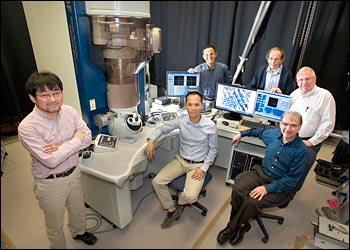DOE scientists develop inexpensive hydrogen fuel generation


Government scientists have made a breakthrough. The U.S. Department of Energy's (DOE) Brookhaven National Laboratory has developed new technology that might have cracked the problem of economically generating hydrogen gas for fuel.
Hydrogen is the most abundant element in the universe, but generating it as a fuel source has posed enormous difficulty. Current methods require significant energy, may require burning fossil fuels, or rare (read: expensive) chemical elements.
Brookhaven scientists announced on Wednesday a new low cost electrocatalyst to use in a chemical reaction to generate gas from water, which they describe as being an "electrocatlytic Goldilocks." It is comprised of catalytic nickel-molybdenum-nitride, and is described in detail in Angewandte Chemie International Edition, a scientific journal.
The cost savings is substantial. Platinum has traditionally been favored as a catalyst, and costs around US$21,418.02 per pound. Nickel runs about $0.55/lb, and Molybdenum costs nearly $35.00/lb.
"We wanted to design an optimal catalyst with high activity and low costs that could generate hydrogen as a high-density, clean energy source," said Brookhaven Lab chemist Kotaro Sasaki, who first conceived the idea for this research. "We discovered this exciting compound that actually outperformed our expectations."
Chemists from the Massachusetts Institute of Technology are exploring a similar method for producing affordable hydrogen with a nickel-molybdenum zinc compound that they describe as being an "artificial leaf."
Related on SmartPlanet:
- An artificial leaf for solar power storage
- Can viruses help make hydrogen fuel?
- A heat battery for solar storage
- New proton path to better fuel cell
- Personal energy systems: Are we there yet?
This post was originally published on Smartplanet.com